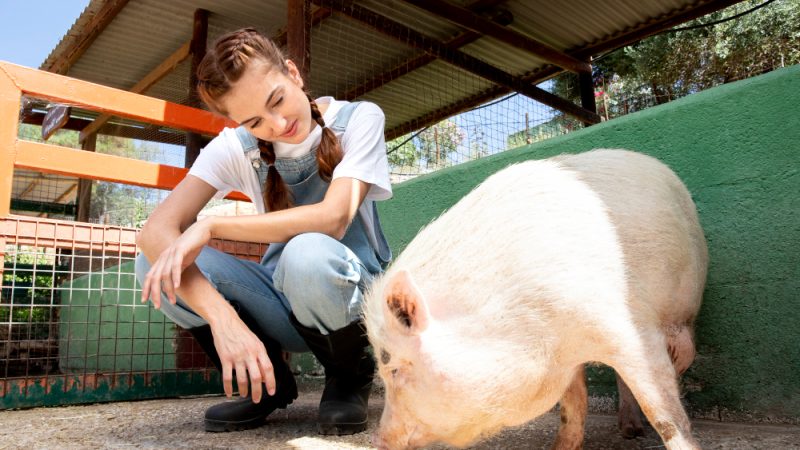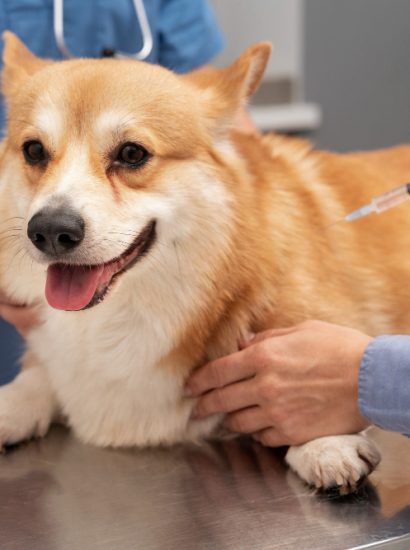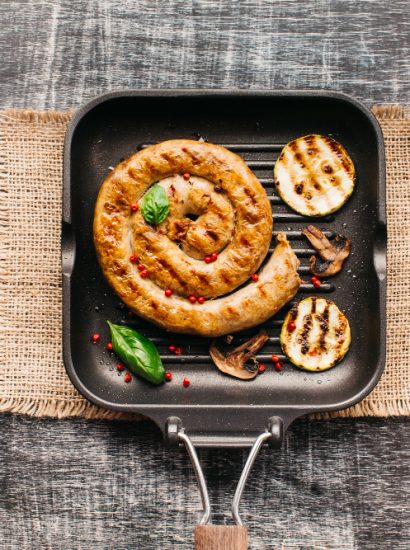Pigs have a long-standing reputation for being animals that will devour absolutely anything placed in front of them. From farm scraps to leftovers, many people assume pigs are nature’s garbage disposals. But is that really true? Do pigs actually eat everything, or are there limits to what they should consume?
In this detailed guide, we’ll explore what pigs truly eat, what they should avoid, and how their diet impacts their health and behavior. Whether you raise pigs on a farm or are simply curious about their feeding habits, this article uncovers the real truth about what pigs will and won’t eat.
Understanding the Pig’s Natural Diet
Pigs are omnivores, which means they can eat both plant and animal-based foods. In the wild, pigs naturally forage for roots, fruits, insects, small animals, and vegetation. Their diet is highly adaptable, allowing them to survive in various environments.
A wild pig’s diet often includes:
- Roots and tubers dug from the soil
- Fruits, nuts, and berries
- Insects, worms, and small reptiles
- Grasses and leafy plants
This natural behavior shows that while pigs have a broad diet, they still choose foods based on availability and preference — not necessarily “anything.”
The Origins of the “Pigs Eat Anything” Myth
The saying “pigs will eat anything” comes from their historical use on farms. For centuries, pigs were fed leftover food scraps, including grains, vegetables, and even cooked meat. Farmers noticed that pigs consumed most of it eagerly, leading to the belief that pigs were indiscriminate eaters.
However, this reputation is misleading. While pigs have a strong appetite and little hesitation toward new foods, they still have digestive limits and specific nutritional needs. Feeding them just anything can cause health problems and even shorten their lifespan.
What Pigs Should Eat for a Healthy Diet
A balanced pig diet includes carbohydrates, proteins, vitamins, minerals, and clean water. Commercial pig feed is scientifically formulated to meet these needs, but you can also feed them natural and homegrown foods if done properly.
Healthy pig diet components include:
- Grains: Corn, barley, wheat, and oats provide essential energy.
- Vegetables: Carrots, potatoes, pumpkins, squash, and leafy greens.
- Fruits: Apples, pears, watermelon, bananas, and berries in moderation.
- Protein: Soybean meal, cooked eggs, milk by-products, and fish meal.
- Water: Clean, fresh water should always be available, as pigs need large amounts daily.
These foods support growth, improve digestion, and keep pigs active and healthy.
Foods Pigs Should Never Eat
Even though pigs can consume a wide variety of foods, not everything is safe. Some foods can make them sick or even prove toxic. It’s essential to know what to avoid when feeding pigs.
Foods pigs should not eat include:
- Raw meat or spoiled meat: Increases the risk of parasites and diseases like trichinosis.
- Raw potatoes and green parts: Contain solanine, a toxin harmful to pigs.
- Moldy or fermented feed: Can cause digestive issues and poisoning.
- Chocolate and sweets: Contain caffeine and sugar, which pigs cannot digest properly.
- Avocado skin and pit: These contain persin, toxic to pigs.
- Excess salt or processed foods: Can lead to dehydration or kidney issues.
Feeding pigs these harmful items can lead to serious health problems and should be strictly avoided.
Do Pigs Eat Meat?
Yes, pigs can eat meat — but it must be cooked and safe. In nature, wild pigs occasionally consume small animals, insects, or carrion. This behavior is natural for omnivores. However, feeding pigs raw or contaminated meat is dangerous and can spread diseases.
For domestic pigs, it’s best to offer protein through safe sources such as cooked meat, eggs, or soybean meal. These provide necessary nutrients without the risk of illness.
The Role of Foraging in a Pig’s Diet
Foraging is an instinctive behavior in pigs. When given access to pasture or wooded areas, pigs naturally root around in the soil, searching for food. This activity helps them exercise, stay mentally stimulated, and consume diverse nutrients from plants and insects.
Allowing pigs to forage not only reduces feed costs but also improves their welfare. They become less stressed, more active, and develop healthier immune systems.
Feeding Pet Pigs: What Owners Should Know
Pet pigs, such as potbellied pigs or mini pigs, require special dietary care. Their nutritional needs differ from farm pigs raised for meat production. Overfeeding can easily lead to obesity, which causes health issues like arthritis and heart disease.
For pet pigs, the best diet includes:
- Commercial pig pellets formulated for miniature pigs.
- Fresh vegetables like lettuce, cucumbers, carrots, and celery.
- Limited fruits as treats — apples, berries, or melons.
- Occasional whole grains for fiber.
Avoid feeding pet pigs table scraps, salty snacks, or processed foods. A well-balanced diet keeps them lean and energetic.
How Much Should You Feed a Pig?
The amount of food a pig needs depends on its size, age, and purpose. Growing piglets require more protein for development, while adult pigs need a balanced diet to maintain weight.
On average, an adult pig eats around 4 to 7 pounds of feed daily. Pregnant or nursing sows require more to support their energy needs. Monitoring their weight and adjusting feed quantity is crucial to prevent obesity or malnutrition.
Consistent feeding times also help pigs develop a routine and reduce aggression during feeding.
Can Pigs Eat Leftovers and Food Waste?
Many farmers feed pigs leftover fruits, vegetables, and grains to reduce waste. While this is economical, it must be done safely. Food scraps should be fresh and free from mold, spoilage, or contamination.
Avoid giving pigs leftovers that contain:
- Oil or grease from fried foods
- Meat bones
- Dairy products in large quantities
- Foods with sauces or spices
Recycling safe leftovers is a sustainable way to feed pigs, but hygiene and balance are key to avoiding health risks.
The Impact of Diet on Pig Behavior and Meat Quality
A pig’s diet influences not only its health but also its behavior and the quality of pork produced. Pigs fed a nutritious diet are calmer, grow evenly, and produce leaner, better-tasting meat.
Poor feeding practices, on the other hand, can cause aggressive behavior, digestive issues, and poor meat quality. Stress and nutritional imbalance lead to tougher pork and reduced yield.
This is why proper feeding management is a cornerstone of responsible pig farming — ensuring animal welfare and high-quality production.
Conclusion
So, will pigs eat anything? The truth is that while pigs have a wide appetite and will try almost any type of food, they cannot and should not eat everything. Pigs are intelligent omnivores that need a balanced diet of grains, vegetables, fruits, and proteins. Feeding them inappropriate or unsafe foods can lead to serious health issues.
Whether you are raising pigs on a farm or keeping one as a pet, providing the right nutrition is essential for their well-being. A healthy pig is an active, happy, and productive animal — and understanding their true dietary needs is the first step toward responsible care.
FAQs
1. Will pigs really eat anything?
Pigs are known for eating a wide range of foods, but that doesn’t mean they should eat everything. They are omnivores and can consume both plant and animal-based foods, but some foods are harmful or toxic to them.
2. Can pigs eat meat safely?
Yes, pigs can eat meat if it is cooked and fresh. Raw or spoiled meat should never be fed to pigs because it can carry bacteria and parasites that cause disease.
3. What vegetables are best for pigs?
Pigs enjoy carrots, pumpkins, squash, lettuce, and sweet potatoes. These vegetables provide fiber, vitamins, and energy while keeping their digestive systems healthy.
4. Is it okay to feed pigs kitchen scraps?
Yes, but with caution. Kitchen scraps like vegetable peels and fruit pieces are fine, but avoid processed foods, meat leftovers, or anything spoiled. Always ensure scraps are clean and safe.
5. What happens if pigs eat the wrong food?
Feeding pigs unsafe or spoiled food can lead to digestive upset, poisoning, or serious diseases. It can also affect their growth and overall health, making them weak or aggressive.
Also read: Paris Bed: The Ultimate Blend of Elegance and Comfort









